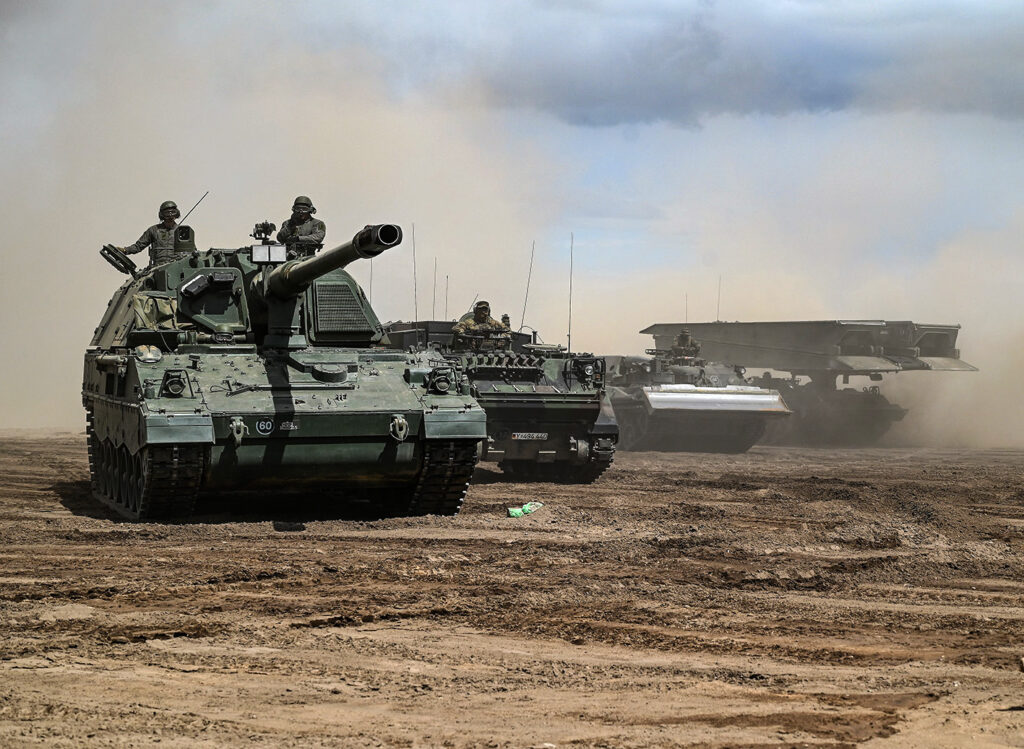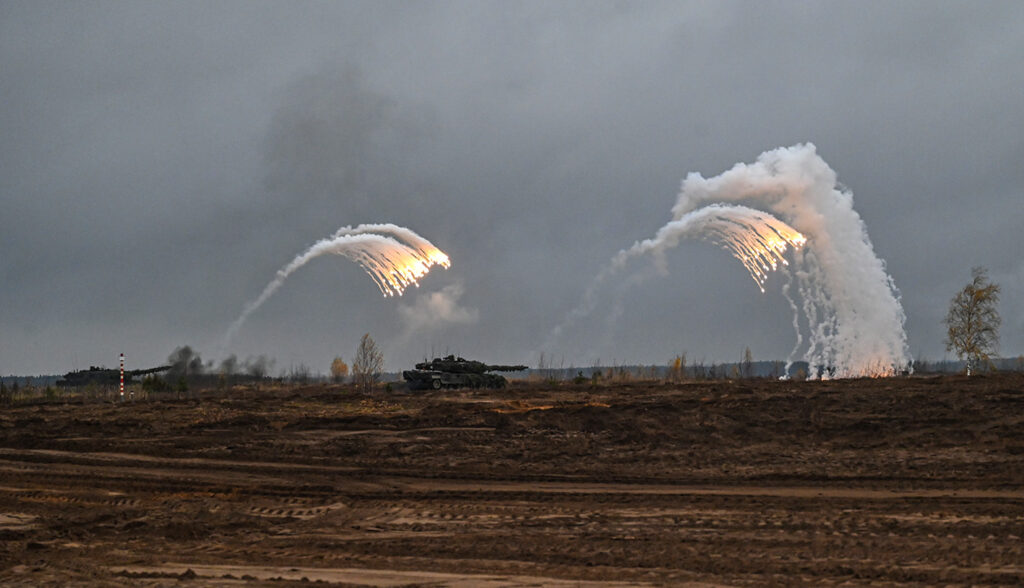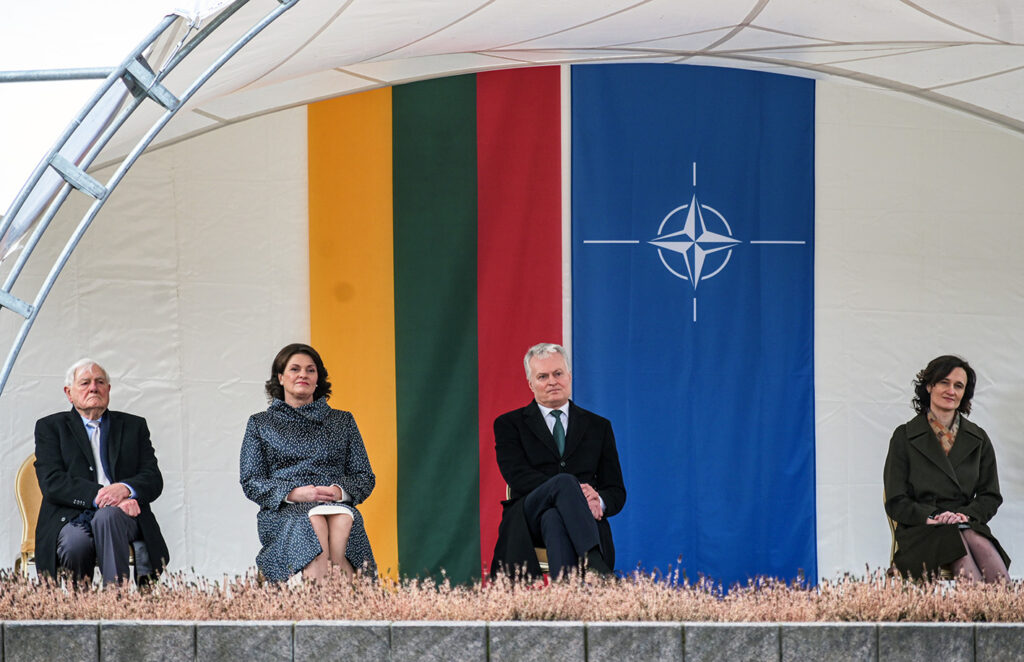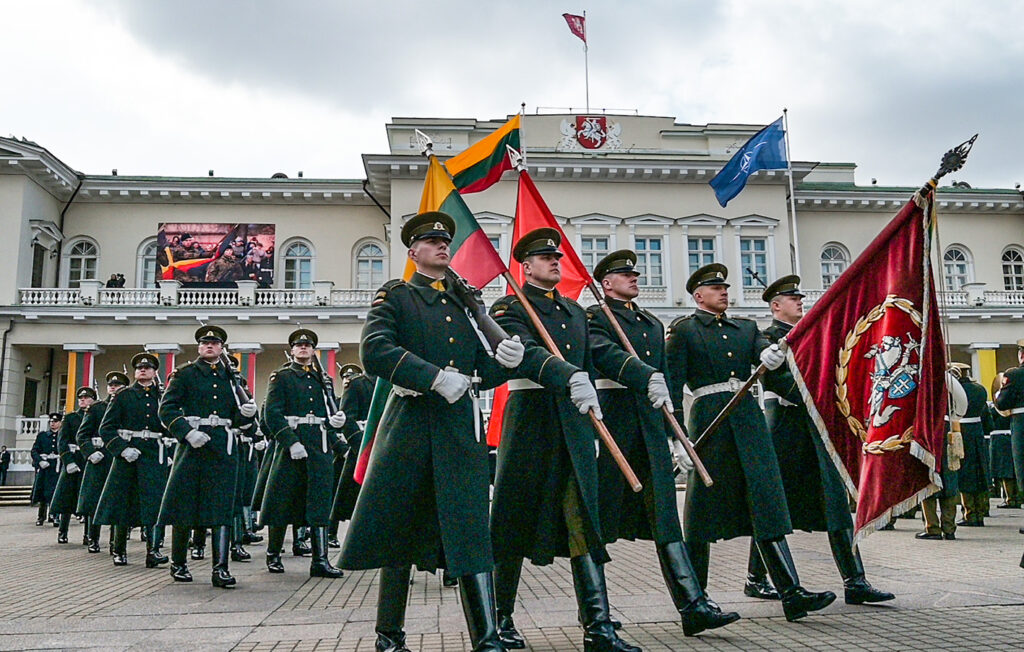After the outbreak of the large-scale war unleashed by the Russian Federation against Ukraine, NATO rethought its strategies on the Eastern European flank. But what is happening in Lithuania in particular? Is an attack against the Baltics really possible? How is the Atlantic Alliance organizing itself? We interviewed Colonel Peter Nielsen, who heads the NATO Force Integration Unit (NFIU).
WATCH THE VIDEO
What the NATO NFIU is
Force Integration Unit Lithuania was created in 2015. It is no coincidence that its birth occurred the year after Russia’s invasion of Crimea.
There are six of them, one of which is in Lithuania. Each of them is within the NFS, which stands for NATO Force Structure, which responds directly to the Supreme Command of the Alliance in Europe (SACEUR).
Among the main tasks of the NFIU: facilitating the deployment of allied forces on the territory and maintaining the efficiency and reactivity of the troops at the highest level in order to be able to face any crisis. As well as coordinate and provide assistance to multinational training and exercises.
In addition to the host country, thirteen nations are part of the unit, including Italy.

New NATO strategy
If before the large-scale war the Alliance based its strategies relying only on small military units present on the territories, with the Madrid NATO summit completely changed its philosophy, aiming to have a deployment of troops elevated to own borders capable of reacting promptly to a possible attack by the Russian Federation.
In practice, they have moved on to a logic of defense force capable of fighting immediately if attacked. Deterrence and defense.

“…Russia has invaded Ukraine and NATO’s new tasks are linked to making the emergency forces in Lithuania more efficient, going beyond the so-called “tripwire” strategy. This is the task we are working on. There are also troop reinforcements arriving in Lithuania. It’s a substantial difference compared to before,” said Nielsen.
THE 20TH ANNIVERSARY OF LITHUANIA’S MEMBERSHIP IN NATO

NATO in Lithuania
There are currently several multinational contigents in the Baltic country. As for air defense, surveillance of the skies is entrusted every four months to two nations stationed at the Šiauliai air base. Their job is to monitor NATO borders and intercept any Russian planes that come too close to the borders or do not observe international procedures relating to military flights.
Troops are stationed in two bases, Rukla and Pabradė. In Rukla there is the eFP Battle Group (Enhanced Force Presence) which involves six nations and whose command is entrusted to Germany. In Pabradė, however, there are US soldiers.
Last year, Lithuania signed a further agreement with Germany which provides for the arrival of an entire German brigade which will be permanently stationed in the Baltic country.
This agreement involves a significant number of men, around five thousand, and vehicles. The first soldiers arrived on Monday 8 April. A small group for the moment, twenty-one people, who will have the task of preparing the arrival of the Brigade. The goal is for this to happen between 2025 and 2026, to be fully operational from 2027.
There won’t just be soldiers. Some of them will arrive in Lithuania with their families. In this regard the colonel stated: “…It is the maximum deterrence that NATO can show. We put a large unit, 5-6 thousand soldiers, from another country in defense of an allied country. We provide families, we deploy soldiers for three years, we integrate them into the country… We show Russia that we are serious”.

Hybrid War
Lithuania, given its geographical position, with the Russian exclave of Kaliningrad, the Suwalki corridor, and Belarus to the south, south-east is in a very complex strategic position. Nielsen is firmly convinced that what NATO is currently doing is the right way to counter a possible Russian attack.
“…We need to invest more in defense in every way and I know that several nations are talking about it. Every citizen also needs to have equipment that allows them to take care of themselves in the first few days. For example, if they run out of electricity. I think this is very relevant. The more we make our countries “indigestible,” the more we prepare the entire society to act against a Russian invasion, the less danger we will face”.
Cyber and information attacks are the order of the day. And already today Europe is in fact fighting albeit in what the colonel defines as a “grey zone”. But the conflict can be limited to these levels.
“…If the NATO nations really do what they promise to do, I don’t think the situation will get worse… What we are doing now will definitely prevent a direct confrontation with Russia in this area”.
In the interview the colonel also talks about how to react to any Russian missiles approaching or falling on NATO territory, which has already happened during the Russian attacks against Ukraine; and the recent proposal to entrust the Ramstein Format for support to Ukraine, currently led by the US, to NATO.
A way, in our opinion, to prevent support for Ukraine from being subject to political changes and turbulence in individual countries. Let’s not forget, 2024 is the year of elections in the USA and it is not known if and how US politics and attitude towards Europe and Russia could change.
Nielsen’s last words are encouraging, especially towards Ukraine: “…European countries are stepping up and providing the necessary resources, identifying additional defense resources and are also supporting the war in Ukraine. We can be sure that Ukraine will win this battle”.
WATCH THE VIDEO

